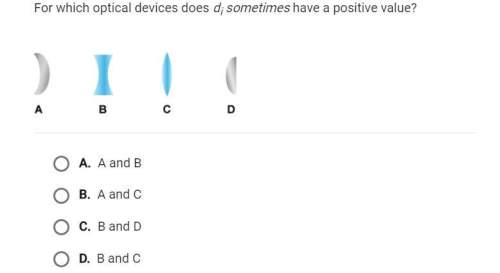
Physics, 04.07.2019 10:50 kayciemarie9486
If you are traveling at 750,000 mm/s, how many km/hr are you traveling?

Answers: 1


Other questions on the subject: Physics

Physics, 21.06.2019 20:30, 173899
Water at room temperature of 20.0°c is poured into an aluminum cylinder which has graduation markings etched on the inside. the reading in the graduations is 300.0 cc. the cylinder with the water in it is then immersed in a constant temperature bath at a temperature of 100°c. what is the reading for the level of water on the graduations of the cylinder after the water and the cylinder reach thermal equilibrium with the bath? the volume coefficient of expansion of water is 2.07 x 10^-4 k-1, and the linear coefficient of expansion of aluminum is 23.0 x 10^-6 k-1. a) 305.0 cc b) 304.0 cc c) 303.5 cc d) 303.3 cc e) 304.5 cc
Answers: 3

Physics, 21.06.2019 22:20, kl8774
Aboxcar traveling at 12 m/s approaches a string of 5 identical boxcars sitting stationary on the track. the moving boxcar collides and links with the stationary cars and they all move off together along the track. what is the final speed of the cars immediately after the collision? (you may take the mass of each boxcar to be 18,537 kg.)
Answers: 1

Physics, 22.06.2019 11:00, Arielledt10
1. jay fills a wagon with sand (about 20 kg) and pulls it with a rope 30 m along the beach. he holds the rope 25° above the horizontal. the rope exerts a 20-n tension force on the wagon. how much work does the rope do on the wagon?
Answers: 1
You know the right answer?
If you are traveling at 750,000 mm/s, how many km/hr are you traveling?...
Questions in other subjects:













